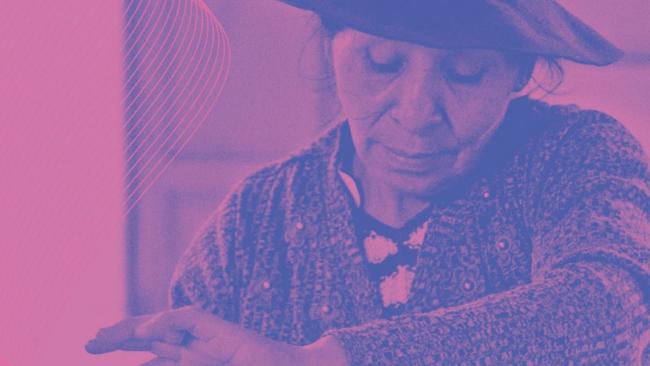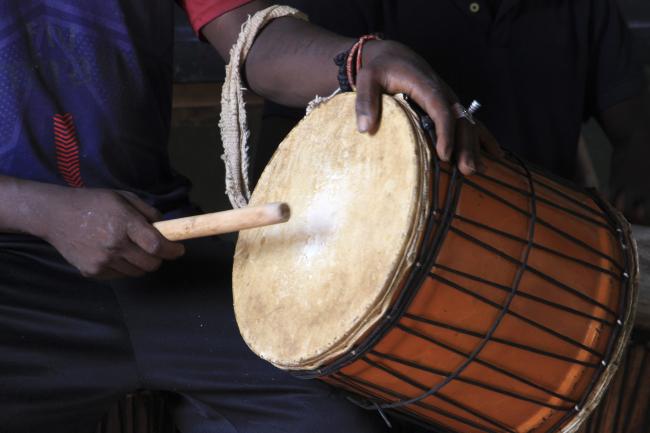Музыка
Jamale Abou Hamad - جمال أبو حمد | W Biit - وبقيت [Official Video]
To amplify the voices of the missing and honor their stories, our colleagues in Lebanon blended art, culture, and community engagement, Jamale Abou Hamad, a talented communications colleague, created a deeply moving song in tribute to these families. Inspired by her experiences and the stories of the families she has met, Jamale’s song is a heartfelt homage to the missing and their loved ones. It features a soulful dialogue between a wife and her missing husband, walking us through the cherished memories and promises that bind them. This work reflects the emotional weight of the issue and seeks to foster greater awareness and empathy, especially among the younger generation.
Rebeca Lane - Así te buscaré
Así te buscaré" is a song for all the missing people by the collective "Buscadoras Guanajuato". Lyrics by Fabrizio Lorusso.
Every night I dream of you Todas las noches te vuelvo a soñar
Despite what they may say
Pese a lo que digan
I never stop waiting
No dejo de esperar
Tomorrow I will dream too, just like yesterday
También mañana soñaré,
Igual que ayer
That's how I will look for you (That's how I will look for you)
Así te buscaré (Así te buscaré)
Every night I dream of you
Todas las noches te vuelvo a soñar
Despite what they may say
Pese a lo que digan
I never stop waiting
No dejo de esperar
Tomorrow I will dream too, just like yesterday
También mañana soñaré, Igual que ayer
Sting - They Dance Alone (Cueca Solo)
A tribute to the "Mothers of the Plaza de Mayo," a group of Argentine women who protested the disappearance of their children during the Dirty War in Argentina in the 1970s and 1980s.
Why are there women here dancing on their own?
Why is there this sadness in their eyes?
Why are the soldiers here?
Their faces fixed like stone?
I can't see what it is that they despise
They're dancing with the missing
They're dancing with the dead
They dance with the invisible ones
Their anguish is unsaid
They're dancing with their fathers
They're dancing with their sons
They're dancing with their husbands
They dance alone
They dance alone...
Chantal Bitar - لا ضليت ولا فليت (YOU DIDN'T STAY NOR DID YOU LEAVE)
A song by the Committee of the Families of the Kidnapped and Disappeared in Lebanon, dedicated to all those who are missing and have been forcibly disappeared.
You didn’t stay nor did you leave -
You didn’t stay nor did you leave
And your clothes are still at home
Asking me about you everyday
Where on Earth did you disappear?
You didn’t stay nor did you leave
and your clothes are still at home
Asking me about you every day
Where on earth did you disappear?
Your face, your voice, you’re fully here
They never fainted, never
And your beautiful laugh is on my mind
And in darkness, your eyes are the light…
Музыкальный проект
В Международный день пропавших без вести МККК и этот проект стали партнерами.

ПЕРУ: ХОРОШИЕ НОВОСТИ ДЛЯ РОДСТВЕННИКОВ ПРОПАВШИХ БЕЗ ВЕСТИ ЛЮДЕЙ
Теуфила, Роберта, Альберта, Фернандина, Матильда и София потеряли членов семьи в результате вооруженного насилия, вспыхнувшего в 1985 году в районе Аккомарка в перуанском регионе Аякучо.
Но в шести коротких танцевальных видео, размещенных в социальных сетях, они рассказали своим пропавшим без вести близким то, что не могли сказать им более трех десятилетий. А ведь прошло уже столько времени, и им было что рассказать.
АЛЛИН ВИЛЬЯКУЙКУНА (BUENAS NOTICIAS)
Танец — способ выразить то, что невозможно сказать словами. Именно так понимают его члены Перуанской национальной ассоциации родственников похищенных, лишенных сободы и пропавших без вести лиц (ANFASEP). Они организовали и сами приняли участие в художественном представлении, задуманном как ритуал, который переосмысливает традиционное празднование Дня мертвых.
BUENAS NOTICIAS | Kayfex + SÖFY + Comité Internacional Cruz Roja + La Plaza y Sala de Parto
GOOD NEWS: DAUGHTERS AND GRANDDAUGHTERS OF AYACUCHO (2024)
Good News: Daughters and Granddaughters of Ayacucho, the new version of the eponymous project, has returned to Huamanga to work with young family members and human rights activists born after the violence.
Thirteen young people from Ayacucho, guided by music producer Kayfex and theater director Claudia Tangoa, have created a song titled Good News, which represents the feeling of the absence of their loved ones in their families and community. Through a song of hope and resilience, the new generations communicate the good news to their loved ones, both men and women, whom they continue to search for.
The song, written in Quechua and Spanish, is produced by Kayfex and performed by Ayacucho singer Söfy in the lead vocals, with the young participants of the project providing backing vocals.


